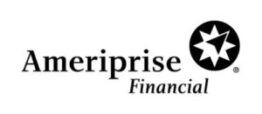
Windsor Street Capital L.P. (formerly known as Meyers Associates L.P.) a brokerage firm headquartered in New York New York has been charged by Financial Industry Regulatory Authority (FINRA) in a Complaint alleging that the firm engaged in a scheme to defraud investors. Department of Enforcement v. Windsor Street Capital LP et al. Disciplinary Proceeding No. 2016048912703 (May 7, 2018).
According to the Complaint, the firm engaged in two separate schemes to defraud investors between January of 2013 and March of 2013. Apparently, the firm and its supervisory personnel enabled its stockbrokers to transact in Windsor Street’s firm accounts to accumulate illicit gains to the detriment of the firm’s customer base.
The Complaint stated that the firm’s average price, riskless principal and bond inventory accounts had been abused by the firm’s stockbrokers to defraud customers. Apparently, those firm accounts had been used by associated persons, Arthur Tacopino and Edwin Rodriguez, to deceptively allocate profitable trades to Tacopino and other Windsor Street Capital employees, while allocating unprofitable trades to customers of the firm.
Particularly, Tacopino reportedly instructed Rodriguez and another entry clerk, AK, to buy securities within the firm’s accounts before designating the accounts that would be affected by the trades. Tacopino allegedly allocated trades after he discovered how those trades had faired. The Complaint stated that if there was an increase in the price of a securities that Tacopino purchased, he instructed AK or Rodriguez to execute a sale of that position, where the profitable trades had been either allocated to Tacopino’s account or directed to be allocated to other firm employees. The Complaint alleged that if there was a decline in the securities that Tacopino purchased, AK or Rodriguez would be instructed by Tacopino to either leave the security within the firm’s account or transfer the security to one of the firm’s customers.
The Complaint stated that Tacopino’s fraudulent allocations allowed him to profit on ninety-eight percent of the trades that he placed, where he generated an eighty-two percent annual return. The Complaint further alleged that Tacopino accumulated profits totaling $417,369.00 based upon his fraudulent scheme, while customers sustained losses totaling $515,000.00. FINRA Department of Enforcement alleged that Tacopino’s conduct was violative of Securities Exchange Act of 1934 Section 10(b); Securities Exchange Commission (SEC) Rule 10b-5; Securities Act of 1933 Sections 17(a)(1) and 17(a)(3); and FINRA Rules 2010 and 2020. Additionally, Rodriguez was alleged by FINRA Department of Enforcement to have aided and abetted Tacopino’s fraudulent conduct.
The Complaint additionally stated that another fraudulent scheme had been set in motion by the firm, wherein customers were assessed undisclosed and mostly excessive markdowns and markups on trades placed in the customers’ accounts. For example, the Complaint stated that undisclosed markdowns and markups had been charged on nine hundred sixty-two equity trades, enabling the firm to accumulate $318,109.16. Apparently, one hundred ninety-nine of those trades involved customers having been charged more than five percent when factoring in undisclosed markups, as there were $104,047.93 in undisclosed markups applied.
FINRA Department of Enforcement alleged that the firm’s conduct was violative of Securities and Exchange Act of 1934 Section 10(b), SEC Rule 10b-5 as well as FINRA Rules 2010 and 2020 in reference to the firm’s fraudulent concealment of those undisclosed markups and excessive charges on one hundred ninety-nine trades. FINRA Department of Enforcement additionally alleged that the firm’s conduct was violative of Securities Act of 1933 Section 17(a), National Association of Securities Dealers (NASD) Rule 2440 as well as FINRA Rules 2010 and 2121. Further, the firm was alleged by FINRA Department of Enforcement to have violated FINRA Rules 2010, 2232, Securities Act of 1934 Section 10(b) and SEC Rule 10b-10 by failing to identify the markdowns and markups on trade confirmations.
Moreover, the Complaint alleged that the firm’s fraudulent activities persisted for several years as a result of the firm’s supervisory failures. Particularly, the firm was alleged by FINRA Department of Enforcement to have failed to create and implement supervision systems and written procedures designed to avert fraudulent allocations of trades and the excessive and undisclosed markdowns and markups. The Complaint stated that the firm’s supervisory failures were violative of FINRA Rules 2010, 3110(a) and 3010(b), as well as NASD Rules 3010(a) and 3010(b).
The information contained herein has been obtained from reliable sources however may not be accurate and is not guaranteed by us. Readers are encouraged to undertake their own independent investigation and evaluation of the relevant facts. All claims and allegations are subject to adjudication, decisions may be subject to appeal, and no inference is intended, nor should any inference be made from any information contained herein from any source.
This posting and the information on our website is for general information purposes only. This content should be not considered legal advice, and any responses, comments, e-mails, other communications do not form any attorney client relationship. Attorney Advertisement. See Important Disclaimer
Guiliano Law Group
Our practice is limited to the representation of investors. We accept representation on a contingent fee basis, meaning there is no cost to you unless we make a recovery for you. There is never any charge for a consultation or an evaluation of your claim. For more information, contact us at (877) SEC-ATTY.
For more information concerning common claims against stockbrokers and investment professionals, please visit us at securitiesarbitrations.com
To learn more about FINRA Securities Arbitration, and the legal process, please visit us at securitiesarbitrations.com








